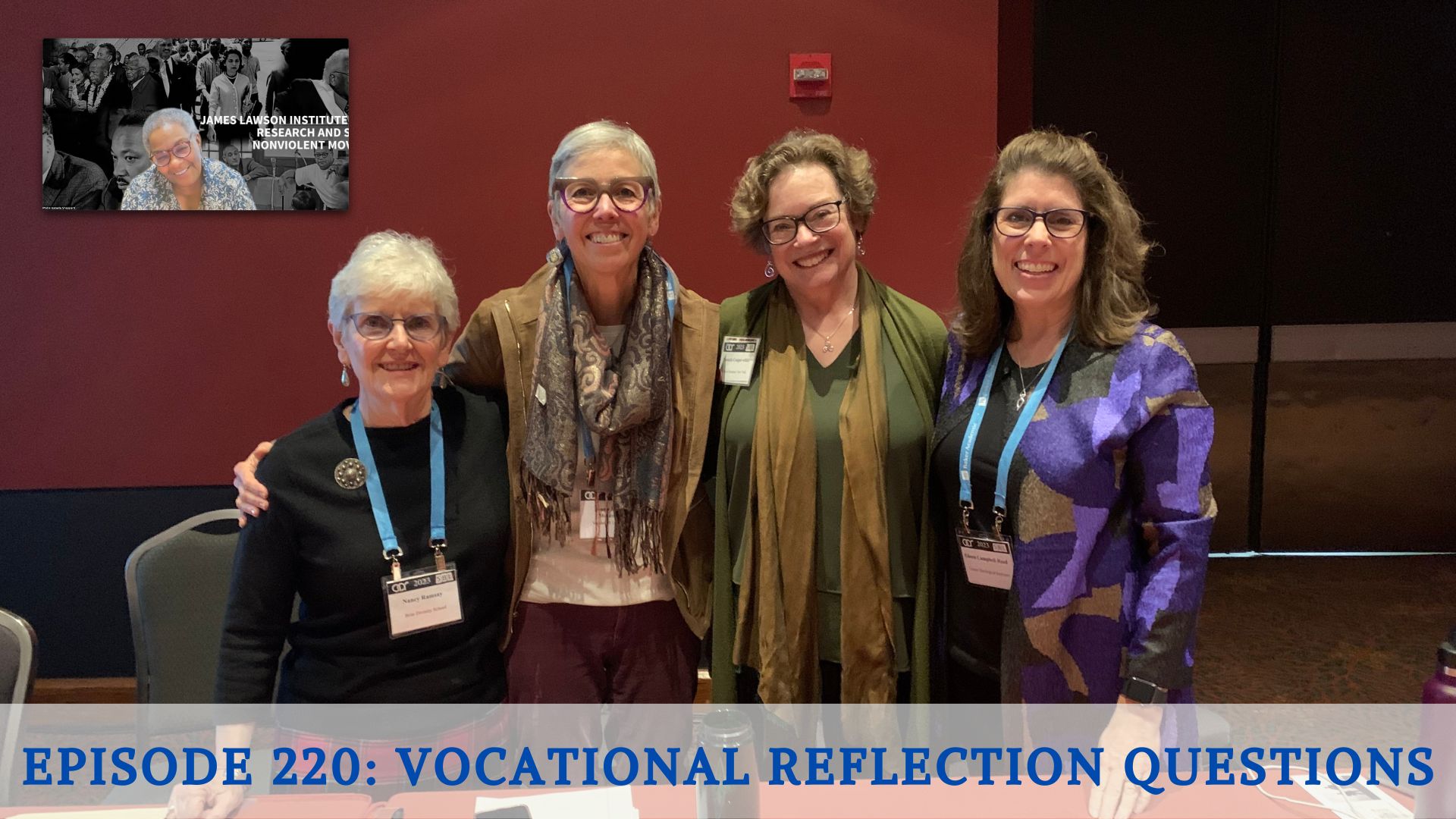This week I had the joy of interviewing four senior scholars by asking them vocational reflection questions. The occasion was the gathering in San Antonio, Texas of the American Academy of Religion. The AAR program unit “Psychology, Culture, and Religion” began in 1974. It has inspired other program units to launch out from it, and it draws together scholars who have been trained in multiple areas of study found in its name (psychology, culture and religion). The PCR continues to make space at the AAR for interdisciplinary scholarship. Scholars and teachers in the humanities and theological education, gather annually at the PCR sessions to present papers, share new ideas, engage in conversations, and generally nerd out together.
The sessions sponsored by PCR take on many complex topics. To help maintain the institutional memory of the group and to make communal space for PCR members, we often meet in a pre-session on the Friday before the AAR begins. This year the focus of our Friday pre-session was an interview with four senior scholars. It was my delight to take the role as interviewer with four senior colleagues Dr. Pamela Cooper-White, Dr. Bonnie Miller-McLemore, Dr. Nancy Ramsay, and Dr. Phillis Sheppard.
The following are streamlined versions of the questions I asked in the interview. We will be thinking about possibilities for how to share their responses. For now I want to share the questions — especially for professors at any stage of their careers. I hope you will take time to freewrite about them.
Vocational Reflection Questions
1) Your relationship with your academic discipline
Although some academics spend many years at one university or school, which shapes their work. It is the academic discipline or guild to which one belongs that can be the more defining force of one’s writing and teaching. The discipline/guild is what allows for advancement, publication, tenure, and promotion. One’s guild is made up of people who will review your work and judge your contributions.
How did you first encounter the group or guild that has grounded your academic work? How has it changed since your first meeting?
2) Visible legacies
For academics, one way to bear witness to the work of one’s guild, field, or discipline, and also to influence or give new shape to the conversations, is to write. In particular writing books is among the more lasting and visible legacies of one’s work in a field of academic study.
How would you say the books and articles you’ve written have positioned you as a scholar? What did you hope your writing would do to change, advance, correct, revise, or start a new direction in thinking and action for your readers?
3) First book to now
Using your first publication as a marking point, answer the following questions:
- How has your writing changed?
- How has the field or discipline (name which one) changed?
- How has publishing for your field or discipline changed?
- How has your mind changed about that first topic you published?
4) Invisible legacies
While books and writing and teaching are visible legacies, much of the work of academia remains hidden and behind the scenes. Examples include starting new initiatives, mentoring and advising, administrative work, and advocating for institutional changes, among other things.
What are some important ways you’ve worked behind the scenes to shape your field(s) discipline(s), or schools(s)? Where did you make an impact that is not immediately visible?
5) The Role of Practice in your Scholarship and Teaching
Not all the valuable or important work in academia is about ideas, observations, and arguments. In many disciplines in the humanities, the last three decades have been a period of recovery and elevation of practice which gives rise to other kinds of knowing. Practices might include clinical work, pedagogy, laboratory experiments, qualitative research, and other aspects of action-oriented work.
Which ideas and arguments have most shaped your scholarship and teaching? What practices have influenced your knowing and shaped your own vocational formation?
6) Religious, Ethical, Moral Commitments
Even when academic work is deeply committed to advancing new ideas or making new knowledge, whether one works predominantly in argumentation and theory or practice and social change, there are underlying values that motivates and inspire one’s work. For some academics these values are explicit and a regular point of reflection. For others, core religious, ethical, moral commitments remain more implicit in their work.
What have been your guiding values (religious, moral, or ethical)? What advice would you give newer scholars in your field regarding the values and future directions of their work?




